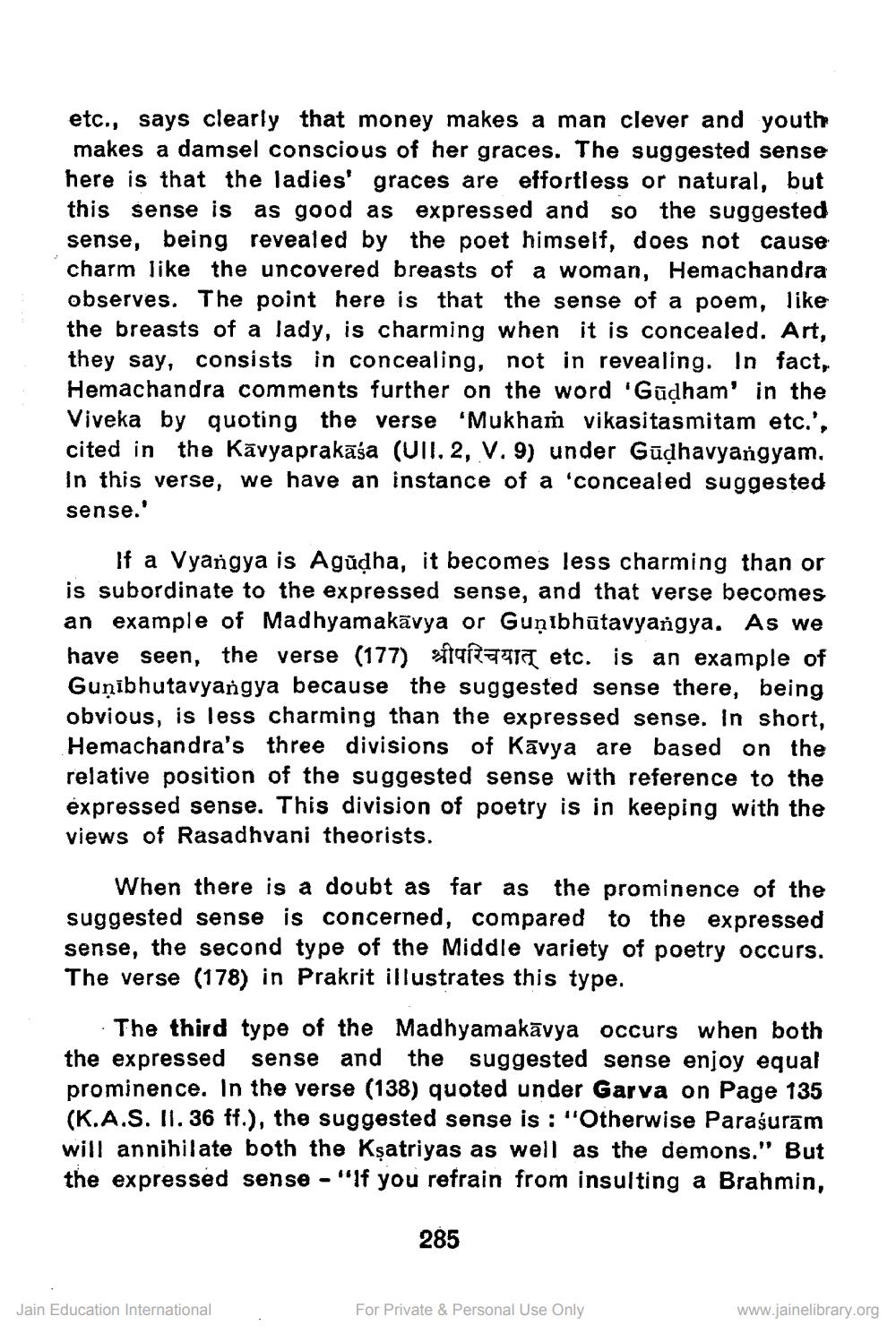________________
etc., says clearly that money makes a man clever and youth makes a damsel conscious of her graces. The suggested sense here is that the ladies' graces are effortless or natural, but this sense is as good as expressed and so the suggested sense, being revealed by the poet himself, does not cause charm like the uncovered breasts of a woman, Hemachandra observes. The point here is that the sense of a poem, like the breasts of a lady, is charming when it is concealed. Art, they say, consists in concealing, not in revealing. In fact, Hemachandra comments further on the word 'Gūdham' in the Viveka by quoting the verse 'Mukham vikasitasmitam etc.', cited in the Kavyaprakasa (UIT. 2, V. 9) under Gūdhavyangyam. In this verse, we have an instance of a 'concealed suggested sense.
If a Vyangya is Agūdha, it becomes less charming than or is subordinate to the expressed sense, and that verse becomes an example of Madhyamakāvya or Guņibhūtavyangya. As we have seen, the verse (177) 9aard etc. is an example of Gunibhutavyangya because the suggested sense there, being obvious, is less charming than the expressed sense. In short, Hemachandra's three divisions of Kavya are based on the relative position of the suggested sense with reference to the expressed sense. This division of poetry is in keeping with the views of Rasadhvani theorists.
When there is a doubt as far as the prominence of the suggested sense is concerned, compared to the expressed sense, the second type of the Middle variety of poetry occurs. The verse (178) in Prakrit illustrates this type.
The third type of the Madhyamakāvya occurs when both the expressed sense and the suggested sense enjoy equal prominence. In the verse (138) quoted under Garva on Page 135 (K.A.S. 11.36 ff.), the suggested sense is : "Otherwise Parasuram will annihilate both the Ksatriyas as well as the demons." But the expressed sense - "If you refrain from insulting a Brahmin,
285
Jain Education International
For Private & Personal Use Only
www.jainelibrary.org




